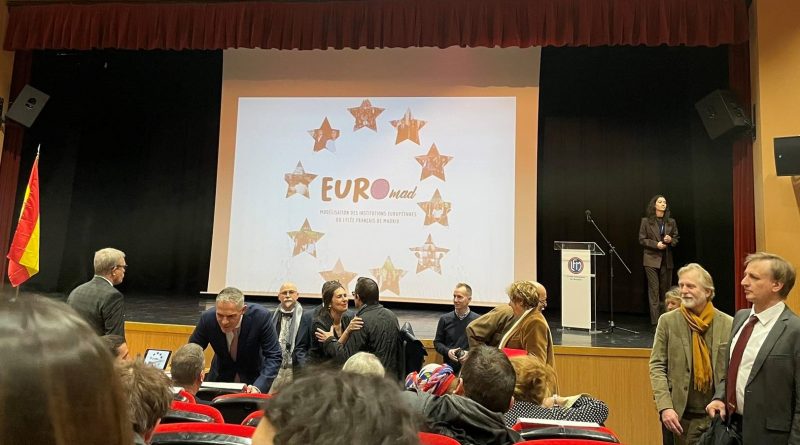The opening ceremony and process of the EUROmad 2024
The participants of EUROmad coming from and representing various countries assemble in the theater of the school on the first morning of the meeting. The air is full of excitement; our students will reenact the jobs of European leaders that they might fill in the future. The team of presidents present the 6th EUROmad conference and give a warm welcome to the guests from all over Europe, but also from countries like Saudi Arabia, Tunisia, and Egypt.
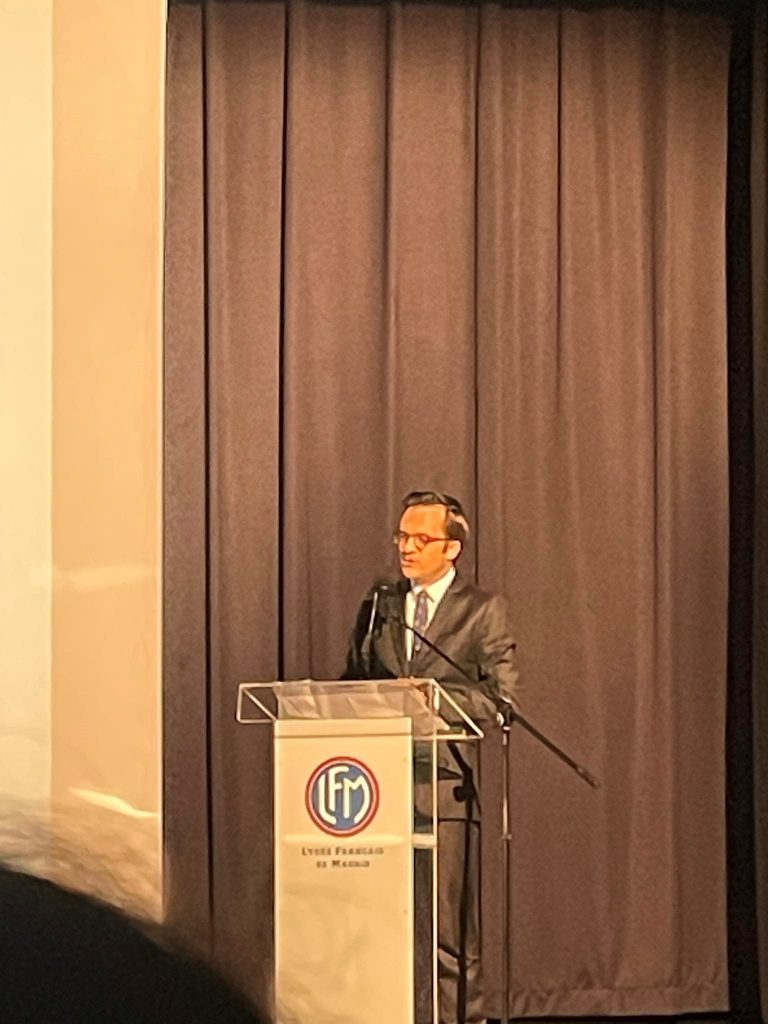
The ceremony starts with a short video made by the communication students, which aims to engage everyone and spark their interest in the European Union and its community. This is followed by a series of presentations by people working in jobs that EUROmad participants model. For example, Jérome Bonnafont, a French diplomat, and Aymeric Chuzeville, the French ambassador in Spain. These and similar jobs could be filled by EUROmad participants in the future.
While one of the organizers is talking between two presentations, we see a rope with something tied to it hanging from the roof, and some start laughing, thinking it is there by mistake. Soon, the organizer explains why it is there: an acrobat/dancer enters the stage to perform a choreography. The rope turns out to be equipment for the routine, the acrobat performs his routine holding onto and hanging from it, and meanwhile performing a dance. He spins in strange positions and climbs to the top of the rope. The crowd is shocked by his flexibility and by the elegance of his choreography.
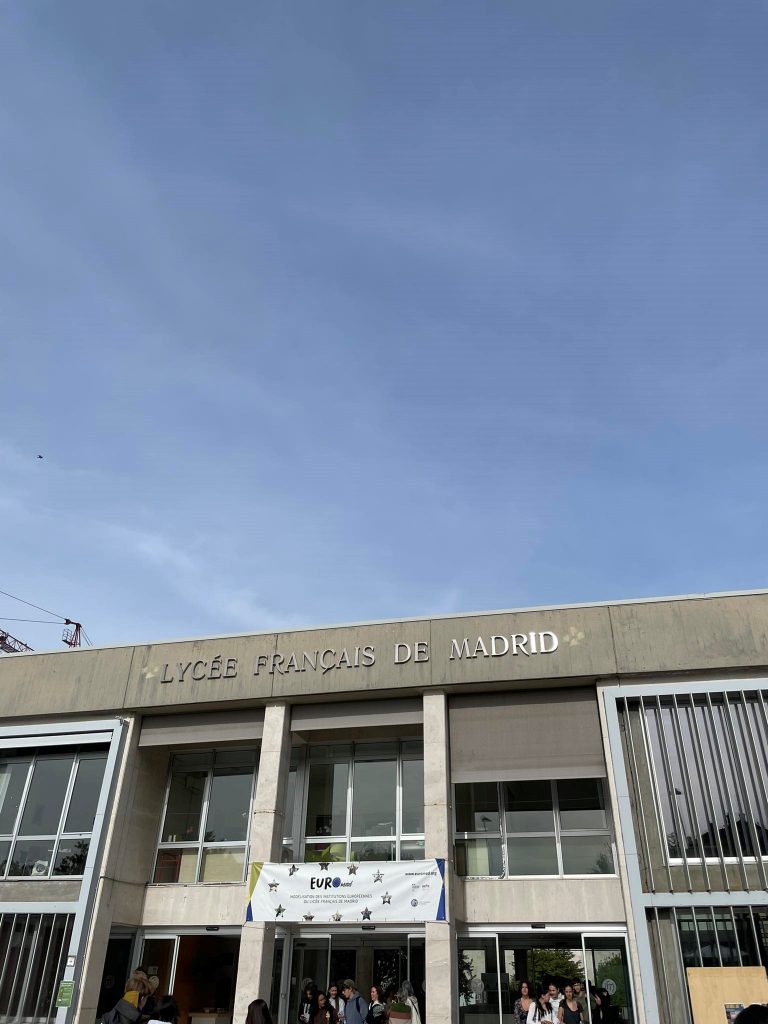
EUROmad celebrates belonging to the EU, the political, cultural, and economic alliance between various countries. EUROmad’s organization is inspired by the pride of Europeans, having established peace and democracy. In the history of European countries, we find several wars. The industrial revolution started in Europe and contributed to climate change. Many European economies gained significant wealth from the colonization of African territories. Europe sees itself as a continent that changed and left its problems behind, now leading the way to a more peaceful and sustainable future. From the perspective of non-EU countries, the change in Europe has not yet gone through, as it still has some of the most polluting countries, and its wealth gained from slavery is still giving it an advantage. There is room for improvement; the European Commission is striving to work in this direction. The debates in the EUROmad committees, designed to be like actual debates in the EU, discuss ways in which the EU can develop further in the future.
After the opening ceremony, the students head to their committees, and start the debates. Each committee operates in a separate room, each member representing a country. They go through a document with propositions for new laws to be implemented, debate each article, and vote on whether it should pass. Representatives can write amendments, changing the law slightly or entirely. They then debate the amendments and vote on them. Articles are arranged into sections, when reaching the end of one (having voted on each article and amendment), they vote on the entire section.
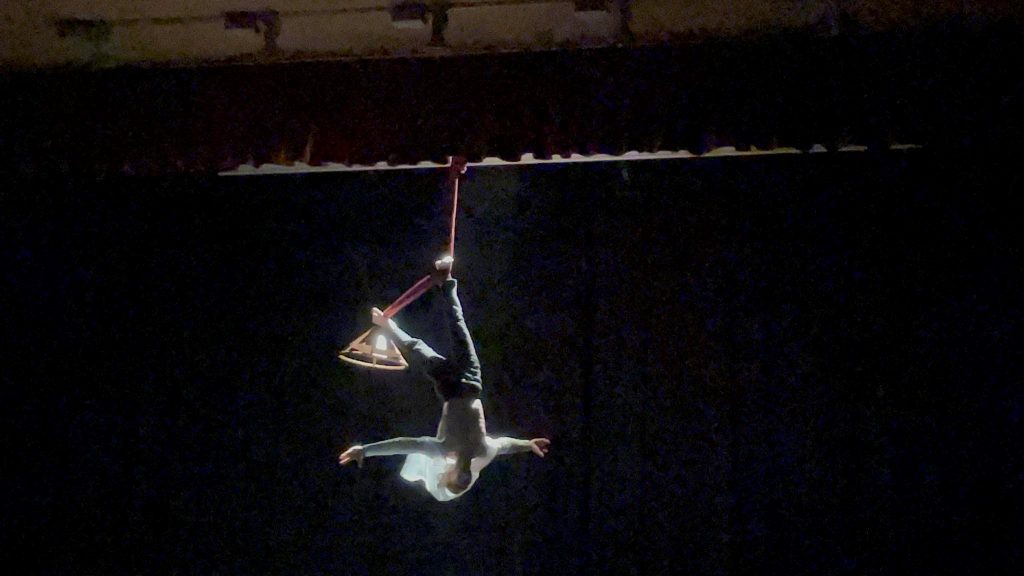
There are two types of debate: formal and informal. In informal debates, delegates walk freely around the room, discussing with whoever they want. The goal of this is to discuss the amendments, and make other countries sign it before publishing them. Informal debates have no format, so they are often chaotic. Formal debates, on the other hand, are highly regular, delegates must raise their card with the country to signal that they want to speak before they do. Delegates must have permission from a president to speak, they must start with thanking the presidency for the word and end with saying they are done talking and give the word back. Delegates cannot use the words “I, You, and We,” instead, they must say “the delegation of ___,” or just the name of the country.
Between the EUROmad debates, to have fun and get closer to the members of their commission, there is a tradition called “gossip box”. A google form is sent to all the representatives, who will have to write a challenge for another delegate to do. These challenges usually include dancing or singing. This year, we saw people slow dance, do striptease, karaoke, sing with water in their mouth, compliment each other, do a kiss-marry-kill, catwalk, and many other activities. On the first day, most are quite shy with the gossip box, but by the end, when people become closer, they get braver. It is interesting to see the same people that were debating politics a few minutes ago complete these crazy challenges.
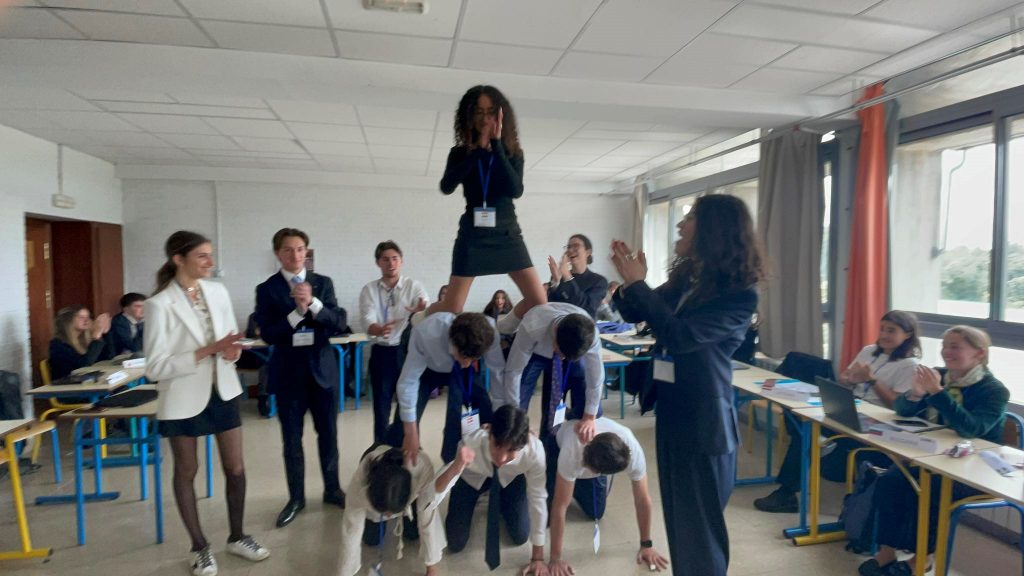
On the last night, the school also organized a party to celebrate all the hard work of every participant who completed the debates. The presidents of the committees are the DJs, the music is mostly Spanish. Many people dance or have conversations, the party has a pleasant atmosphere. It puts an end to the EUROmad, and leaves everyone with happy memories.
All the participants learned a lot from the EUROmad experience, we all talked to people from all around the world, people we would have never met otherwise. The event was well organized, the debates permitted all to learn a lot, and surely all participants got closer to each other. We thank the French Lycée of Madrid for this opportunity, the presidency of the committees for their organization efforts, and the teachers at our school accompanying us, for making this unforgettable experience possible.
Léna Csigo / S5HU / EEB1 Uccle

